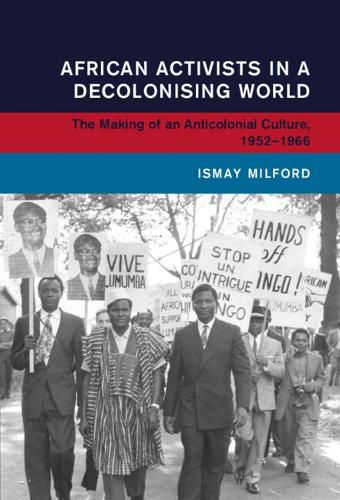Readings Newsletter
Become a Readings Member to make your shopping experience even easier.
Sign in or sign up for free!
You’re not far away from qualifying for FREE standard shipping within Australia
You’ve qualified for FREE standard shipping within Australia
The cart is loading…






As wars of liberation in Africa and Asia shook the post-war world, a cohort of activists from East and Central Africa, specifically the region encompassing present-day Malawi, Zambia, Uganda and mainland Tanzania, asked what role they could play in the global anticolonial landscape. Through the perspective of these activists, Ismay Milford presents a social and intellectual history of decolonisation and anticolonialism in the 1950s and 1960s. Drawing on multi-archival research, she brings together their trajectories for the first time, reconstructing the anticolonial culture that underpinned their journeys to Delhi, Cairo, London, Accra and beyond. Forming committees and publishing pamphlets, these activists worked with pan-African and Afro-Asian solidarity projects, Cold War student internationals, spiritual internationalists and diverse pressure groups. Milford argues that a focus on their everyday labour and knowledge production highlights certain limits of transnational and international activism, opening up a critical - albeit less heroic - perspective on the global history of anticolonial work and thought.
$9.00 standard shipping within Australia
FREE standard shipping within Australia for orders over $100.00
Express & International shipping calculated at checkout
As wars of liberation in Africa and Asia shook the post-war world, a cohort of activists from East and Central Africa, specifically the region encompassing present-day Malawi, Zambia, Uganda and mainland Tanzania, asked what role they could play in the global anticolonial landscape. Through the perspective of these activists, Ismay Milford presents a social and intellectual history of decolonisation and anticolonialism in the 1950s and 1960s. Drawing on multi-archival research, she brings together their trajectories for the first time, reconstructing the anticolonial culture that underpinned their journeys to Delhi, Cairo, London, Accra and beyond. Forming committees and publishing pamphlets, these activists worked with pan-African and Afro-Asian solidarity projects, Cold War student internationals, spiritual internationalists and diverse pressure groups. Milford argues that a focus on their everyday labour and knowledge production highlights certain limits of transnational and international activism, opening up a critical - albeit less heroic - perspective on the global history of anticolonial work and thought.